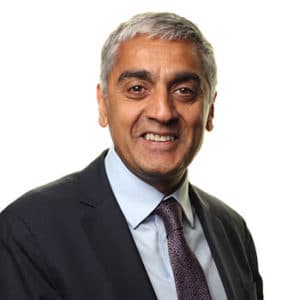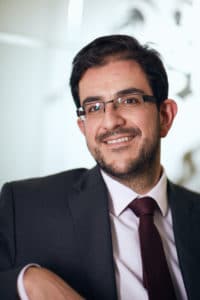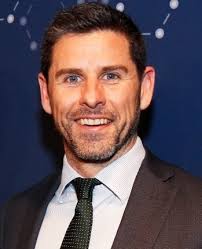Following on from the recent paper published in the European Journal of Preventative Cardiology https://web.archive.org/web/20200902080555/https://journals.sagepub.com/doi/full/10.1177/2047487320930596 providing practical answers to key questions being posed by the sporting community about exercise during the Covid-19 pandemic , Professor Sanjay Sharma and Dr Michael Papadakis will be holding a webinar at 3pm on June 15th to further discuss this paper and answer any questions.
The impact of the COVID-19 pandemic on the global sporting community has been immense, disrupting fixtures, contracts, training schedules and those mass-participation events once thought to be immovable and untouchable, such as the London Marathon and the 2020 Olympic Games. But it is the impact – both physiological and psychological – on individual participants that is coming under greater scrutiny as a gradual loosening of the international lockdown starts to see training and competition slowly reintroduced. And with this, comes many pertinent questions and concerns from club doctors and athletes alike.
Whilst for the general population it is possible during the lockdown to maintain physical activity with the promotion of daily walks, runs, and exponential growth in sign-ups to online work-outs and sales of home gym equipment and bikes, little has been discussed about the effect of “detraining” on an elite athlete – and conversely, to what level it is safe to train at – during the current pandemic.
In answer to these questions, a new paper has today been published (June 1 2020) helping all stakeholders in professional and elite sport to navigate evolving research and advice and to effectively and safely prepare for a return to competitive sport in the current and post-pandemic era.
The publication originated from a team of Research Fellows funded by the charity Cardiac Risk in the Young (CRY) and is led by Dr Michael Papadakis and Professor Sanjay Sharma from the unit of Sports Cardiology and Inherited Cardiac Diseases at St George’s University, London.
Introductions
Dr Michael Papadakis
Exercise in the COVID-19 era;
Facts and fiction
Professor Sanjay Sharma
Going back to exercise;
A roadmap to re-training
Professor Mathew Wilson
Cardiac evaluation prior to returning to sport;
One size fits all?
Dr Michael Papadakis
Conclusions
Professor Sanjay Sharma
Questions
 Sanjay Sharma is Professor of cardiology and head of research for the clinical academic group at St George’s University of London and St George’s NHS Foundation trust. His research interests include sudden cardiac death in the young, heart muscle disease and cardiovascular adaptation in athletes for which he has developed an international reputation culminating in over 240 PubMed citations and authorship of numerous textbooks. He regularly lectures at major scientific meetings and is considered a world leader in his field.
Sanjay Sharma is Professor of cardiology and head of research for the clinical academic group at St George’s University of London and St George’s NHS Foundation trust. His research interests include sudden cardiac death in the young, heart muscle disease and cardiovascular adaptation in athletes for which he has developed an international reputation culminating in over 240 PubMed citations and authorship of numerous textbooks. He regularly lectures at major scientific meetings and is considered a world leader in his field.
Professor Sharma leads a large tertiary inherited cardiac diseases programme serving South East England to manage young patients with cardiomyopathy and ion channel diseases. He is the director for the largest sports cardiology unit in the UK which is responsible for athletes with potentially serious cardiac diseases including amateurs but also professionals from a number of sporting organizations including the English Football Association, rugby league, Lawn Tennis Association, English Institute of Sport, Team GB Rowing and Team Sky cycling. He is the medical director of the London marathon and has been commended for providing one of the best medical services for endurance events in the world. Professor Sharma is also the chairman of the expert cardiology consensus panel for the English Football Association and for the 2012 London Olympics, he was appointed lead cardiologist. Until recently, he was chairman of the ESC sports cardiology nucleus and congress programme committee member of the European Society of Cardiology and the European Association of Preventive Cardiology.
Working with the charitable organisation, Cardiac Risk in the Young (CRY) for the past 20 years, Professor Sharma leads the largest cardiac screening programme in the UK for individuals aged 14-35 years old. The charity screens over 20,000 individuals each year from which several data sets have been developed to provide an estimate of the number of young individuals dying suddenly from unsuspected heart disease and offer strategies to prevent such tragedies. His role in promoting the detection of cardiac disease in the young has been recognised within the British government where he gives an annual address at the CRY Parliamentary Meeting.
Professor Sharma leads a large research group based at St.George’s, University of London and the publications generated from his expertise have helped further our understanding of the athlete’s heart on a global scale. Not only has he contributed to European scientific position statements and recommendations for sporting participation in athletes with cardiac disease, but he was lead author of the international recommendations for the interpretation of the athlete’s ECG that were co-published in EHJ and JACC in 2017. His reputation as a world-renowned leader in this subject has most recently been highlighted by reporting the outcomes of screening adolescent athletes in NEJM, which has helped shape screening policies of sporting organizations in the UK and beyond.
 Dr Papadakis is a Reader in Cardiology at St George’s, University of London and an Honorary Consultant Cardiologists at St George’s University Hospitals. Dr Papadakis qualified at Imperial College School of Medicine in London in 2001 and gained membership of the Royal College of Physicians in 2007. In 2014 he was awarded a Medical Doctora at King’s College London. He is the chair of the section of Sports Cardiology and Exercise of the European Association of Preventive Cardiology (EAPC). His interests include sports cardiology, inherited cardiac diseases, cardiovascular disease prevention including prevention of sudden cardiac death in young and athletic individuals, heart failure and cardiac imaging. Dr Papadakis is currently credited with more than 80 publications in peer reviewed medical journals and numerous presentations in national and international conferences. He has contributed to a number of projects as an expert, including the creation of the Sports Cardiology core curriculum, the creation of the international ECG criteria for an athlete’s evaluation and exercise recommendations in individuals with heart disease. He has advanced education in the field of Sports Cardiology by building educational material for the European Society of Cardiology and launching a novel MSc degree in Sports Cardiology, the first postgraduate qualification of its kind.
Dr Papadakis is a Reader in Cardiology at St George’s, University of London and an Honorary Consultant Cardiologists at St George’s University Hospitals. Dr Papadakis qualified at Imperial College School of Medicine in London in 2001 and gained membership of the Royal College of Physicians in 2007. In 2014 he was awarded a Medical Doctora at King’s College London. He is the chair of the section of Sports Cardiology and Exercise of the European Association of Preventive Cardiology (EAPC). His interests include sports cardiology, inherited cardiac diseases, cardiovascular disease prevention including prevention of sudden cardiac death in young and athletic individuals, heart failure and cardiac imaging. Dr Papadakis is currently credited with more than 80 publications in peer reviewed medical journals and numerous presentations in national and international conferences. He has contributed to a number of projects as an expert, including the creation of the Sports Cardiology core curriculum, the creation of the international ECG criteria for an athlete’s evaluation and exercise recommendations in individuals with heart disease. He has advanced education in the field of Sports Cardiology by building educational material for the European Society of Cardiology and launching a novel MSc degree in Sports Cardiology, the first postgraduate qualification of its kind.

Please consider donating to support CRY’s research programme.
23p in every £1 spends goes towards research.
Research is vital in helping us better understand the prevalence & causes of Young Sudden Cardiac Death as well as improve our ability to diagnose & manage cardiac conditions in young people.
Research saves lives.

Preventing young sudden cardiac deaths through awareness, screening and research, and supporting affected families.
Head Office:
Unit 1140B, The Axis Centre,
Cleeve Road, Leatherhead,
Surrey KT22 7RD
Tel: 01737 363222
Privacy Policy
Safeguarding Policy
Accessibility Statement
Email: cry@c-r-y.org.uk
Registered Charity in England & Wales (1050845) & in Scotland (SC052581)
| Cookie | Duration | Description |
|---|---|---|
| cookielawinfo-checbox-analytics | 11 months | This cookie is set by GDPR Cookie Consent plugin. The cookie is used to store the user consent for the cookies in the category "Analytics". |
| cookielawinfo-checbox-functional | 11 months | The cookie is set by GDPR cookie consent to record the user consent for the cookies in the category "Functional". |
| cookielawinfo-checbox-others | 11 months | This cookie is set by GDPR Cookie Consent plugin. The cookie is used to store the user consent for the cookies in the category "Other. |
| cookielawinfo-checkbox-necessary | 11 months | This cookie is set by GDPR Cookie Consent plugin. The cookies is used to store the user consent for the cookies in the category "Necessary". |
| cookielawinfo-checkbox-performance | 11 months | This cookie is set by GDPR Cookie Consent plugin. The cookie is used to store the user consent for the cookies in the category "Performance". |
| viewed_cookie_policy | 11 months | The cookie is set by the GDPR Cookie Consent plugin and is used to store whether or not user has consented to the use of cookies. It does not store any personal data. |
Notifications